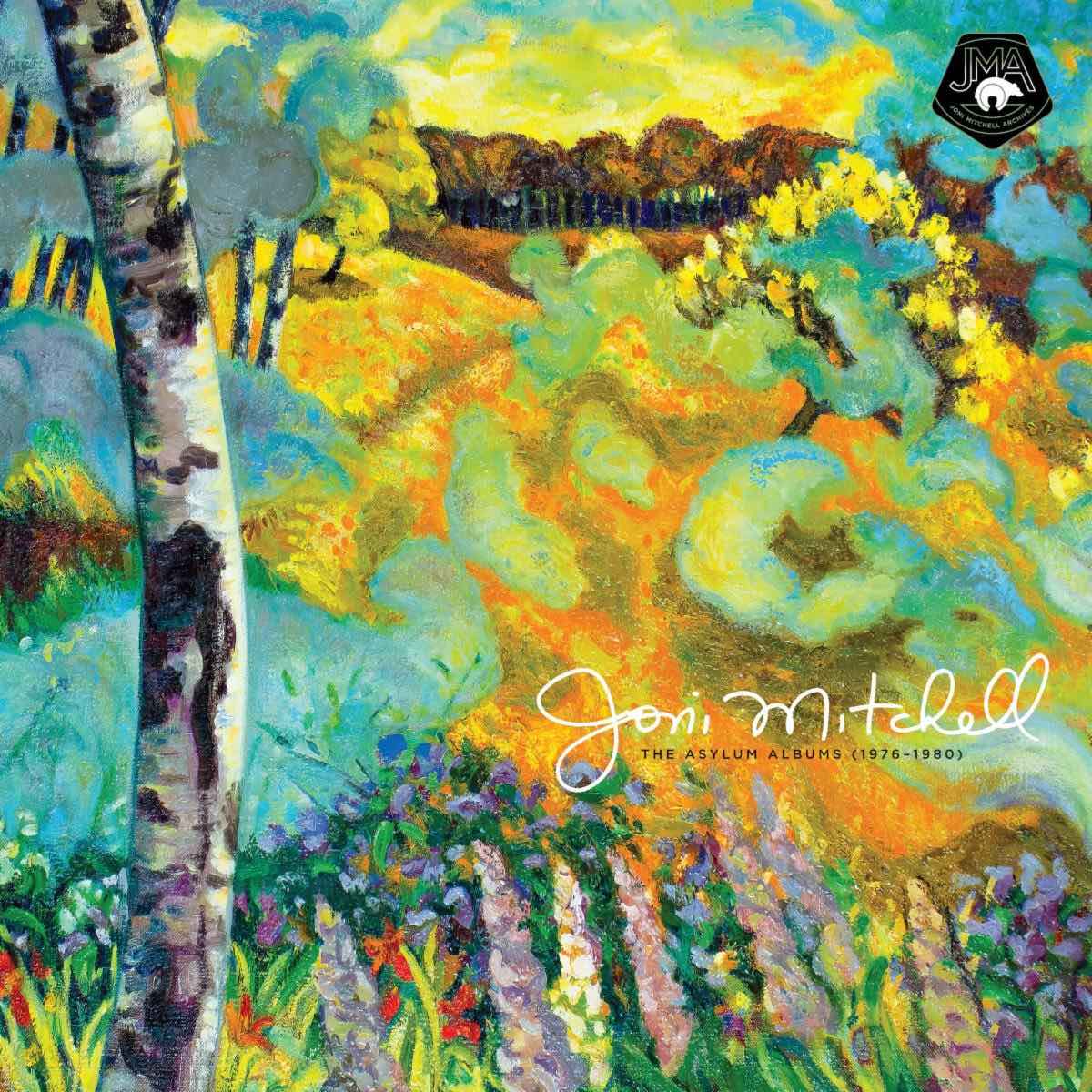Joni Mitchell
The Asylum Albums (1976-1980)
ASYLUM/RHINO
If Joni Mitchell’s Asylum label albums released between 1972 and 1975 found the literary lyricist-composer with the equally elastic voice falling in love with Los Angeles’ era-apportioned cool jazz and buggy electronic music, the atmospheric, liberated blues of 1976’s Hejira and the short story, melodic complexities of 1977’s Don Juan’s Reckless Daughter and 1979’s Mingus found her freer and more footloose than ever.
Certainly, Mitchell’s experimentation with guitarist Pat Metheny, keyboardist Herbie Hancock, and the Weather Report team of fretless bassist Jaco Pastorius and universe-traveling saxophonist Wayne Shorter was crucial to the expanse of Hejira’s “Coyote” and “Refuge of the Roads.” Mitchell’s restless, touching, funny words of poetic introspection soar above each sultry rhythm and within each sinewy element of its instrumentation like a bird (perhaps the titular black crow of the album’s tender oddity). While her vocals hold dear a new brand of warmth and vitality not heard on previous recordings (the actor-ish “Furry Sings the Blues” and the breezy sensuality of “Blue Motel Room”), there’s also a new independence to be found within the grooves of Hejira. Within its nine songs’ walls, Mitchell proved that she had few fucks to give—a cocky sensibility that expanded to having zero fucks to tend to on the truly experimental likes of Don Juan and Mingus.
The six separate detuned guitars and roaming, FX-laden vocals of “Overture: Cotton Avenue”; her 16-minute piano improvisation across the gray-blue skies of “Paprika Plains”; the theatrical “Dreamland” duet with Chaka Khan against a bed of rollicking percussion; the salty jazz of “Jericho”—these are the things that make Don Juan so alluringly strange. Not everything here clicks into place like the mesmerizing Magnetic North that is Hejira, but in retrospect, Don Juan is its own brand of enticement and entrance.
Mingus, her collaboration with the titanic jazz bassist and composer of the same name? Let’s start with my prayer that Asylum and Rhino officially release (as they have with most Joni compilations) another box of era-appropriate rarity collections that include the NYC sessions of Mingus musicians such as saxophonists Phil Woods and Gerry Mulligan, powerhouse drummer Tony Williams, and Charlie’s longtime partner-in-crime Dannie Richmond. Not that the Mingus recording you get in this box is anything to sneeze at. The legend wrote several tracks with Mitchell (along with a version of his “Goodbye Pork Pie Hat”) and the result is a mix of then-present-day pop-driven funk and blowsy bop on “Sweet Sucker Dance” and “The Dry Cleaner From Des Moines.” Along with her co-compositions with Mingus, Mitchell’s own work opens further to the wild romantic possibilities of jazz on the gurgling jive of “God Must Be a Boogie Man” and the gangly “The Wolf That Lives in Lindsey.”
Completing the new Asylum box is Mitchell’s second-ever live album, 1980’s Shadows and Light, which—save for the inclusion of The Persuasions’ immensely soulful backing vocals on “Why Do Fools Fall in Love” and “Shadows and Light”—sounds like what it is: the Pat Metheny Band and Weather Report tackling Joni classics such as “Free Man in Paris” and “Woodstock” on a handful of summer 1979’s most warm weather evenings. Taken as a whole, this Asylum box will test every idea that you ever had of Joni Mitchell’s folkie poetic impulses.







